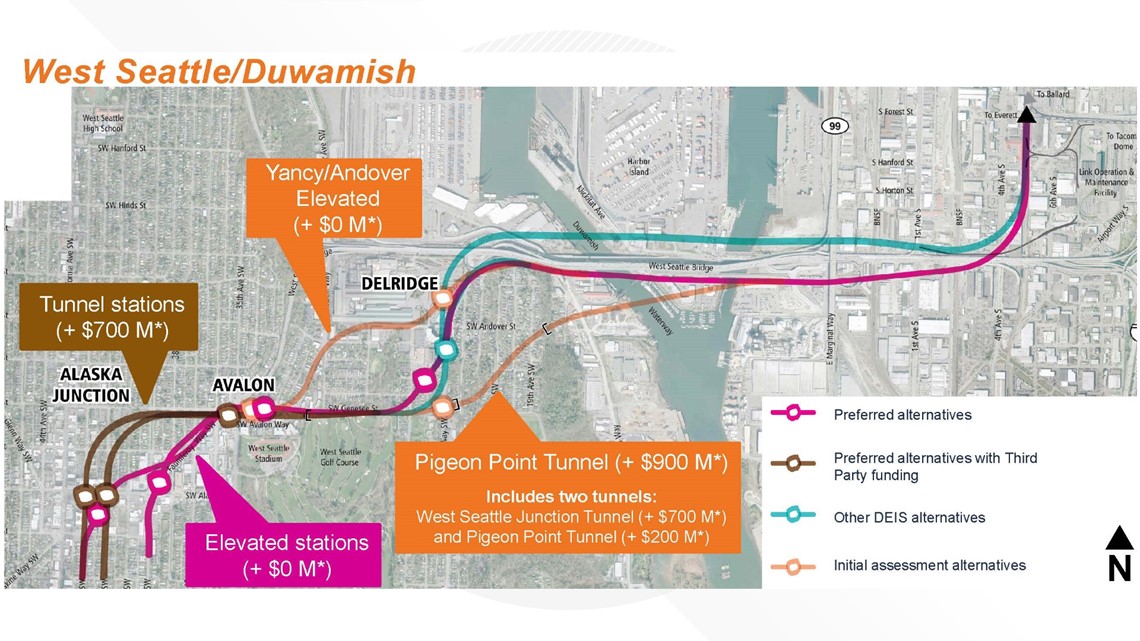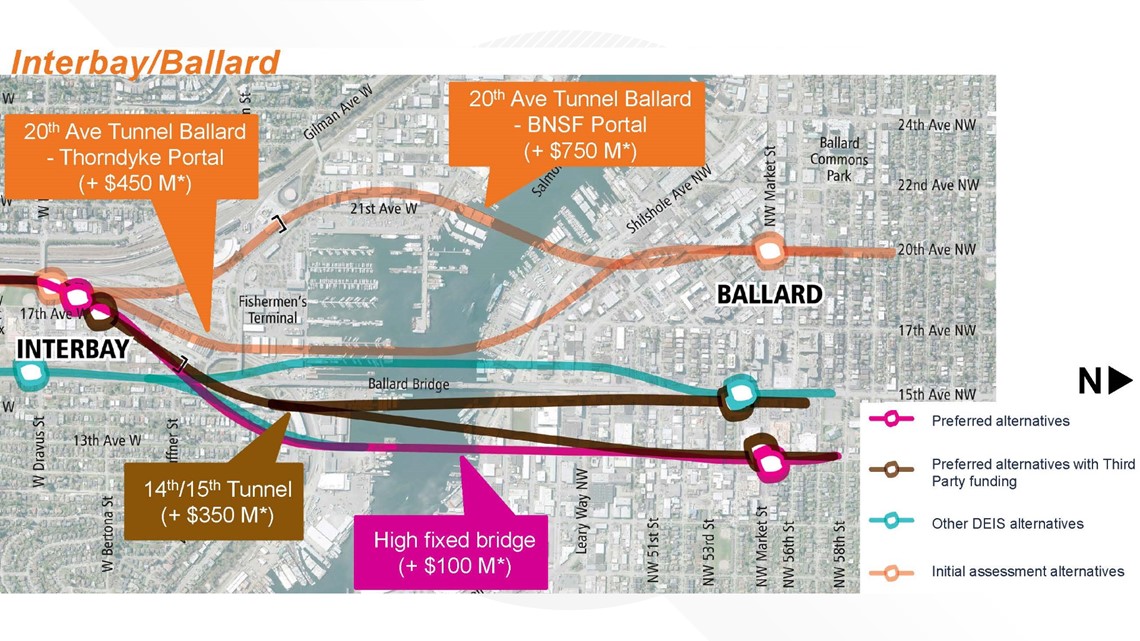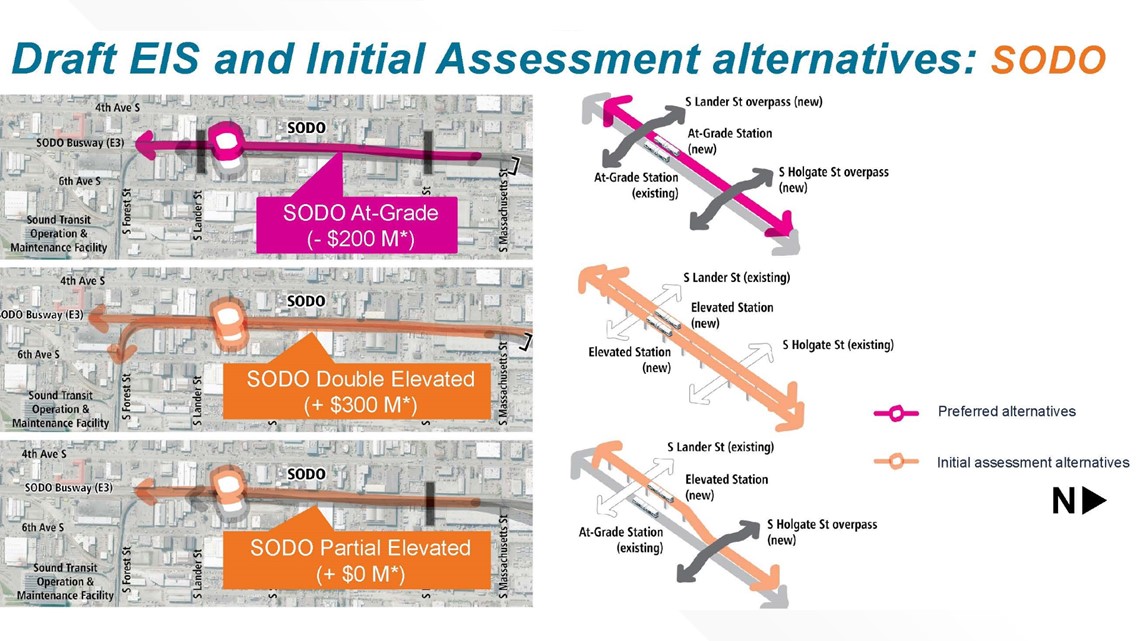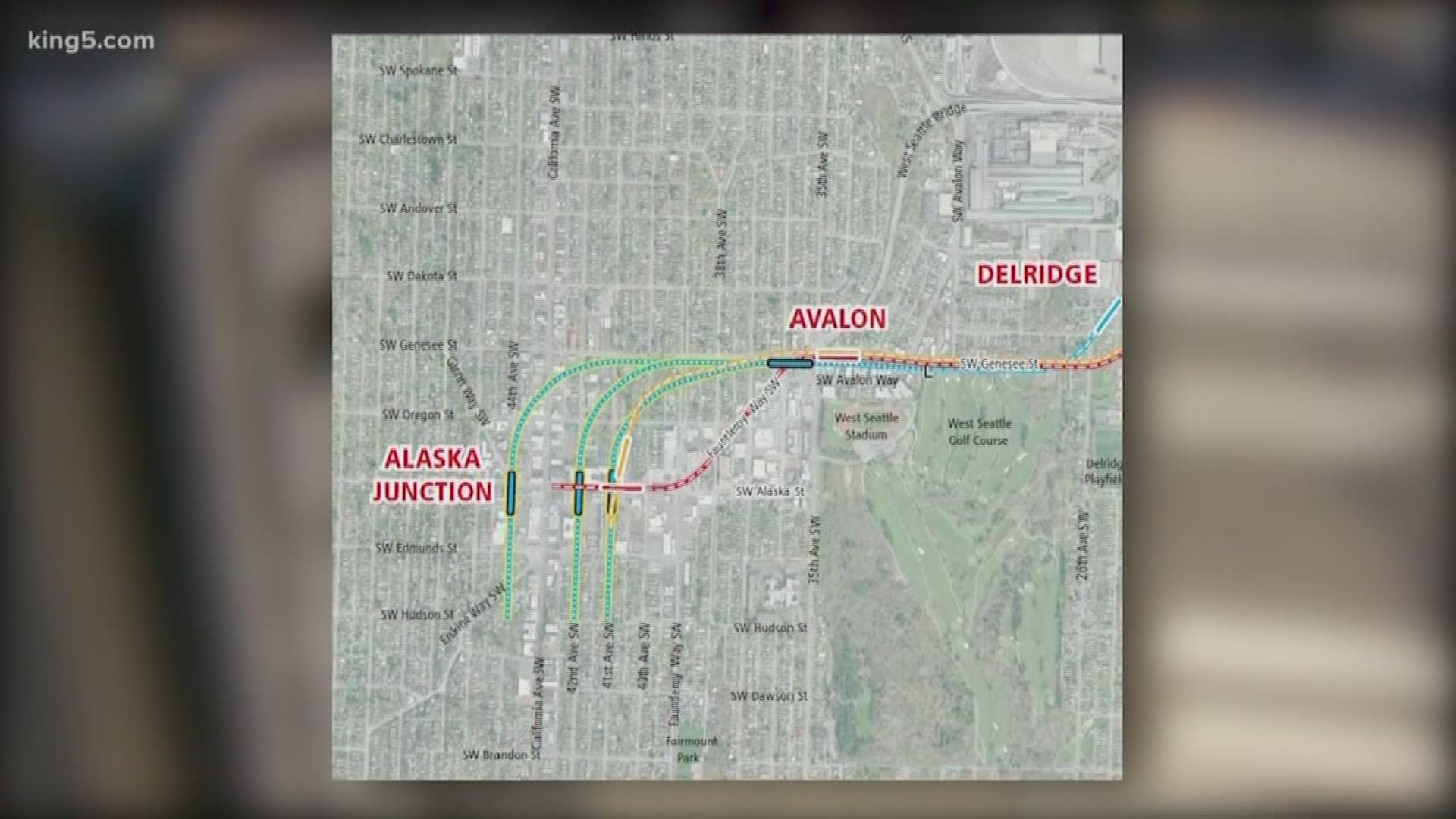SEATTLE — Editor's note: The above video originally aired in April 2019.
Concerned about ballooning costs, Sound Transit board members have decided to not move forward with studying additional costly light rail tunnel options to Ballard and West Seattle. They will study a second path for an elevated railway near Delridge and a partially elevated railway in SODO.
Board members voted on a series of new light rail design options during a meeting Thursday before the agency moves forward with a draft environmental impact statement.
Sound Transit staff provided an initial shortlist of choices in May, but since then the board asked staff to look into additional options that came out during the scoping process.
Those options included the Pigeon Point and West Seattle Junction tunnels, which was a second light rail tunnel option to West Seattle that would minimize business and residential impacts in Youngstown and Pigeon Point and connect to a further south Delridge station with better public access, according to community input Sound Transit gathered. However, the Pigeon Point and West Seattle Junction tunnels would add $900 million to the project, $700 million of which would come from the West Seattle Junction section.
“My eyes are rolling back in my head when I’m thinking about that much money,” said University Place Mayor Kent Keel, who serves on the board.
The proposal failed with nine board members voting against the Pigeon Point tunnel and six in favor.
The board did approve studying a second elevated light rail path along Yancy and Andover streets in addition to a path that would run through Youngstown.


Sound Transit staff had also looked at two additional tunnel options to Ballard along 20th Avenue, one of which would cost an additional $750 million and dip under Salmon Bay north of Fisherman’s Terminal. The other option would cost an additional $450 million and cross the BNSF tracks.
Seattle Mayor Jenny Durkan, King County Executive Dow Constantine have both signaled support for tunneling light rail to Ballard. However, the new tunnel proposals didn’t come up for a vote before the board.
The board will still look at tunnel options that would end on 14th or 15th Avenue Northwest and would cost an additional $350 million from original project estimates.


In SODO, the board decided to study a partially elevated structure in addition to the at-grade design, which is Sound Transit’s preferred option. The partially elevated design would build an elevated station at South Lander Street and use an existing at-grade station, allowing bus traffic underneath and eliminating the need for a new overpass at Lander. It would come at no additional cost.
Board members did not move forward with a double elevated option, which would build two new elevated stations and cost an additional $300 million.
“Staff has come up with this partial elevated alignment that has many of the elements of the double elevated, but at a cost that’s closer to the representative alignment,” said Constantine.


Sound Transit plans to begin developing the draft environmental impact statement by the end of the year, and the board will confirm or modify its preferred routes to Ballard and West Seattle in 2021.
All of the tunnel options would require third-party funding, the source of which has yet to be determined. If the board went with tunnel options in Ballard or West Seattle, that source would need to be “well defined” by the end of 2020, according to Sound Transit Board Chair John Marchione.
The decisions came as one source of funding for projects – car-tab fees – is in jeopardy. In November, voters will decide whether to approve Initiative 976, which would cap car-tabs at $30 and would cut $6.95 billion in funding from Sound Transit.
If the initiative passes, Sound Transit could be forced to drastically revise project plans.

